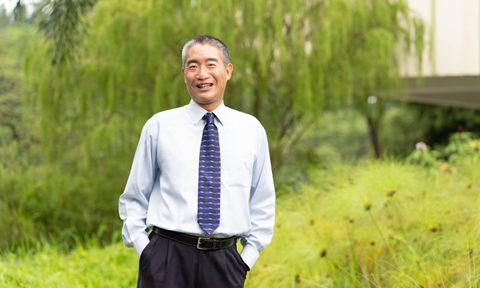Knowledge-Building Session: A Living Theory, A Growing Classroom
A research grant from SkillsFuture Singapore initiated a Knowledge Building Community (KBC) for early childhood educators, which bootstraps on the existing KBC for educators. Thus, this particular Knowledge Building (KB) network was marked as the very first of its kind that connected practitioners from early childhood to primary and secondary teachers.
This KB Network Learning was held at Sarada Kindergarten on 22 October 2019. The network session brought together close to 50 teachers and researchers.
Researchers were from the Office of Education Research’s research programmes of Learning Sciences and Innovation (LSI) and Teacher Professionalism and Learning (TPAL) and the Center for Research in Child Development (CRCD). Singapore University of Social Sciences (SUSS) lecturers in the early childhood education segment were also part of the community.
The community shared their advances and challenges in bringing students’ voices and ideas to the center of their classrooms. There was a great exchange of ideas and culture throughout the network, especially between the pre-school and lower primary teachers.
“Seeing what five year-olds can do in knowledge building really inspires me to try it out in my P1, P2 class” Lower primary teacher from St Hilda’s Primary School

Interactions among teachers during the session
Sharings from Pre-School Teachers
The session first commenced with sharings from two pre-school teachers, Shah and Sulo, from Ramakrishna Mission Sarada Kindergarten. Participants saw how these teachers brought different KB principles to life and created a classroom filled with student-led ideas and classroom interactions.
Shah’s exploration into living things had allowed students to develop further queries into the absorption of water in flowers without roots. Following from these queries, they gained a higher-level understanding of plant parts that go beyond the
curriculum level, like xylem and roots in grasping the concept of transportation in plants.
Shah’s presentation of her application of KB in a K2 class
Sulo shared how students delved deeper into the topic of food wastage. The children raised the question on food wastage during their field trip to the hawker center in which they observed the amount of food being thrown away at the tray collection point. The students brought the problem back into the classroom and realised that they were also wasting food during their snack-time.
This led to a topic discussion on food wastage and the students, by interviewing and conducting an investigation, sought to better understand food wastage in classrooms. Following this investigation, students successfully generated solutions to reduce food wastage and promoted the message among other classes within the school.

Sulo’s sharing of the application of KB principles in a K2 classroom
Sharings from Primary School Teachers
The session next proceeded with sharing from Andy and Jamay, teachers from Saint Hilda’s Primary School. Participants saw how Jamay utilised the KB cards in the classroom to encourage deeper discussion amongst students on the topic of water cycles. Through this exploration, students learned to apply the concepts learned from the water cycle to explain that the dew tank bottle should be placed outside at night rather than day.


Jamay’s presentation of her experience of KB in St Hilda’s Primary School
Sharing of Challenges and Support for KB practices
The session also gave participants the opportunity to voice out some of their challenges when switching from traditional practices to KB practices. Vice-principal Uma, of Ramakrishna Mission Sarada Kindergarten, explained how KB is an immersive culture that pervades across different levels in the school.
She mentioned the importance of having support from the staff members so as to manage parent’s expectations and ensure that the teachers are able to meet the requirements of the curriculum, so as to allow students to develop these 21st century skills as well as expand their understanding of concepts brought forward.

Uma, from Ramakrishna Mission Sarada Kindergarten, sharing her experiences of KB
Melvin, a History teacher from Teck Whye Secondary school, introduced to participants how he implemented KB practices into the school curriculum using an ABC framework (Acknowledge our experiences, Build our competencies and Courage to try).

Melvin, from Teck Whye Secondary school, sharing with participants how he implemented his ABC framework based on KB principles.
The final portion of the session consisted of the future directions of KB, like the development of Curriculum Analysis charts to support teachers and students in KB discourse, as well as scaling up so that there is sufficient support from the schools and the community. This would ensure that the innovations and ideas of students are sustained throughout these students’ schooling and allowing these skills learned from KB to grow and evolve continually.
Through the sharings and presentations of current research findings, there is evidence to suggest that KB, a pedagogy that uses student-directed practices, can not only deepen student’s understanding of classroom concepts and improve on ideas in the curriculum, but also deepen the teacher’s understanding. Therefore, it is a transformative experience that benefits both students and teachers alike in the advancement of knowledge.
This event provided an exciting and engaging space for the exchange of ideas and knowledge across school levels by bringing together the KB community to facilitate a deeper understanding into KB practices as a means for transformative learning.
This learning session had not only re-energised the teachers practising KB, but also kindled interest in the teachers to venture into KB practices so as to advance the collective knowledge and push the boundaries of our education system.




.tmb-listing.jpg?Culture=en&sfvrsn=13b00373_1)

